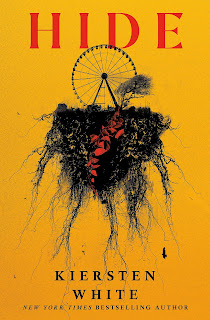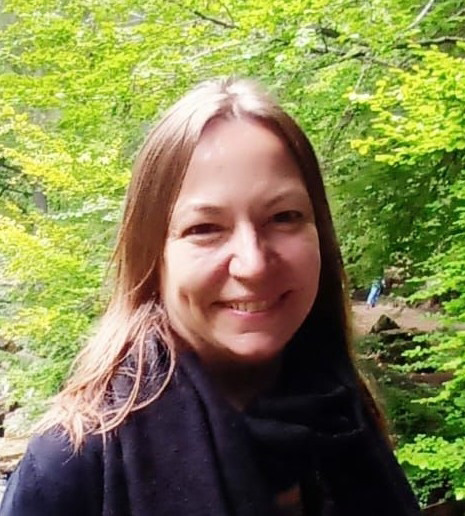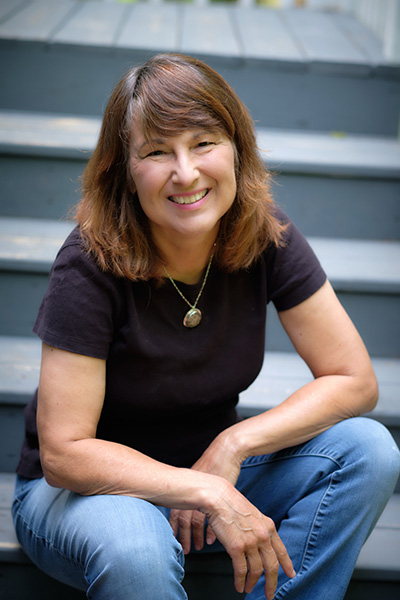(Image by Ben Johnson from Pixabay)
by Deborah-Zenha Adams
Introduction: Find Your Fictional Character’s Energy Motivators
How an ancient philosophy of energy can help you create better characters
It doesn’t matter what genre you’re writing, characters are the lifeblood of your story. No matter how perfectly-plotted, tightly-structured, and wildly creative your story is, readers might not stick with it if the characters are hollow, bland, or just plain unbelievable.
You get that. We all get that. Characters must be well-rounded and fully-realized, with both positive and negative qualities to make them realistic and relatable. So why do our characters still sometimes ring hollow? More importantly, what can we do to ramp up the authenticity of the players in our fiction?
There are lots of charts and templates and lists of personality quirks that you can use to flesh out your characters, but here’s a caveat: you can’t just stick one trait onto an otherwise purely good or purely evil character and expect readers to fall for it. Flaws come in clusters, and they come from a source. If you’ve tried to develop in-depth psychological profiles of your protagonist and antagonist but they still aren’t breathing, I’ve got a quick and easy tip to offer.
Try using chakras.
What are chakras?
Chakra is a Sanskrit word meaning ‘wheel,’ and it refers to wheel-like masses of spinning energy that helps to maintain health within the body and mind. Sometimes the energy wheels will be called spinning disks or even flowers. Mind you, these aren’t physical objects, but part of the subtle energetic body. The concept of chakras is ancient, and found in a great many spiritual and philosophical systems. It’s also a lot more complex than a blog post or a workshop can convey.
But have no fear. You don’t need to understand the fine points in order to create well-rounded and unique fictional characters. In fact, we aren’t going to refer to chakras again after this introduction. Let’s just call it energy and move forward. When you’ve tried this system once or twice, you’ll find that it’s both easy and fun to use, and it adds a wealth of dimension to your writing.
How can a character’s energy status be useful to you, the writer?
You’ve surely run across a character in a book or story that just didn’t resonate. Maybe you couldn’t quite put your finger on the problem, but that character never won your affection. The likeliest cause is that the author failed to go beyond the surface and connect the dots in that character’s personality.
Anyone can design a villain who is 99% stereotypical evil, and give him an affection for puppies. You know, just to make him “well-rounded.” While readers may not explore the why of it, they’ll know something’s off, something’s not working. They might even give up without finishing the story, or worse—never read that author again.
How do you fix a shallow character?
One way to find your character’s depth is by incorporating a cluster of related energetic traits. Let’s say your protagonist is anxious, nervous, or just vaguely tense about nothing in particular. Now a single instance of anxiety isn’t a symptom of anything in particular. Maybe she just drinks too much coffee. But when your character is acting from an Earth Energy imbalance, for example, there will be a cluster of related behaviors. That character’s entire lifestyle will be affected—eating habits, housing, clothes, job, car, social interactions, you name it.
In this 7-part series of posts, I’ll explain how to identify defining emotional and physical reactions to the world and how to use those clusters of energies to infuse life into your characters. We’ll begin with Earth Energy, the foundation of every character’s personality.
Find Your Fictional Character’s Energy Motivators: Part 3, Fire
Using an ancient philosophy of energy can help you create better characters
This is the third part of a series of posts that exist across multiple blogs. You can find links to the other posts
on my blog.
The Fire Energy is associated with willpower, ambition, motivation, self-esteem, and manifestation.
- Confidence
- In control of one’s life
- Responsible and reliable
- Self-disciplined
- Energetic
- Able to turn ideas into action
- Duties and obligations are met without complaint
- Sharp mind
A healthy Fire Energy is built on balanced Earth and Water. With Earth providing a stable and secure base, and Water providing positive self-image and flow, Fire Energy can burn with a steady flame. Characters with Fire equilibrium know what they want, know their own strengths and limitations, and have both the desire and the stick-to-it-iveness to follow through to the end.
Classic Fire Energy Characters
An excellent example of balanced Fire Energy is the sister in “The Six Swans.” Even though her brothers tried to dissuade her from helping them because of the hardships required, this strong Fire Energy character never hesitated and never gave up on her quest to save her brothers. She is the poster child for balanced Fire Energy!
Some of the symptoms of imbalance in Fire Energy might be:
- Poor digestion
- Eating disorders
- Low self-esteem
- Submissiveness
- Poor self-discipline
- Easily manipulated by others
- Impulsiveness
- Dominating, controlling behavior
- Competitiveness
- Risk-taking behavior
- Impatience
An imbalance of Fire Energy can be summed up by the words “I will have/get/do it at any cost!”
When your character’s Fire Energy gets wonky you’ll know it by the expression of certain personality traits and behaviors.
Because energy is constantly moving and changing, there is almost always an imbalance. As mentioned in an earlier section of this series, every energy affects the energies above it. This means that your character with an uneven Fire Energy will also exhibit symptoms of imbalance in the areas of Air, Ether, Light, and Consciousness. (These areas are addressed in Parts 4-7 of this series. You can find links to the other posts at
Find Your Fictional Character’s Energy Motivators.
Classic Fire Energy Imbalanced Characters
Lady MacBeth: Talk about ambitious! Here’s a character that was laser-focused on her goal, and so far out of balance that even her mind was unbalanced.
Red’s Wolf: Fire Energy’s connection to digestion isn’t always metaphorical. The wolf in this classic tale gulped down Grandma and still wanted more! Even if his never-get-enough behavior didn’t alert us to his Fire Energy, we’d figure it out by his shrewdness—he had a quick answer for every question (“The better to see you with, my dear.”)
These are just a few characters from classic stories who likely suffered from Fire Energy imbalance. You can probably think of dozens of other characters from literature (and real life) with this same imbalance. Go ahead and leave your thoughts about them in the comments section.
Questions to ask about your character:
When you discover (or determine) that Fire Energy imbalance is present in your character, take some time to mull over the implications.
- How does Fire energy imbalance affect your character’s behavior and outlook?
- Does she have a clear vision of what she wants? Does she have confidence in her ability to get it in a fair and ethical way? Or is she willing to do whatever it takes in order to get her own way?
- Does she drive her own life? Or is she submissive, deferring to someone else’s wishes?
- Can she be depended upon? Or is she flighty and unreliable?
- How does she deal with obstacles and setbacks?
- What caused the imbalance in the first place? Was it lifestyle, stress or trauma, a loss of connection to the authentic self? Was it caused by some outside force?
- What other symptoms might be present? Start with the brief list at the beginning of this post and extrapolate.
How to strengthen the Fire Energy association in your writing
You can reinforce the effect of Fire Energy by using subtle indicators of this imbalance. For example, you might
- Use words and phrases throughout your narrative that call to mind the Fire Energy qualities: burning anger, driven, blaze, determined, hot blooded, flame, boiling point, warmth, firelight, etc. Does your character have blazing eyes or a fiery personality? Is she starved for attention or hungry for fame?
- Use the color yellow, perhaps in clothing, furnishings, cars, flowers, or flames. What does this color mean to your character—cowardice or sunshine, jaundice or gold bars?
- Bring in other elements associated with this energy. Is your character a firefighter? A foodie? Has she been burned, either literally or figuratively? Are things heating up for her in one or more areas of her life? Has she burned bridges?
Practice & Prompt
1. Choose any character from your work in progress. Make a list of physical, mental, and emotional traits characteristics that you’ve already assigned to that character. For example, let’s say you’ve written: responsible, self-disciplined, always gets the job done, micro-manages her staff, lives on coffee and tacos.
Taken together, these create a cluster of Fire Energy attributes. The last two lean toward an imbalance, an over-abundance of Fire. Does that work for or against your character? Is she on the verge of imbalance in other areas? Does she perceive it or ignore it or is she too driven to care?
2. Where did her imbalance originate? When and why did the imbalance fluctuate and grow stronger or weaker? What scenes relay this information to the reader?
3. Within the context of her story, how might the imbalance be mitigated?
4. What element of your theme is manifested in Fire Energy? How can you use the character’s imbalance to strengthen the theme and vice versa?
One or more of your characters will almost certainly be dealing with Fire Energy imbalance. Now that you’ve experimented with ways to use that imbalance to flesh out a character, you’ll want to move on to other characters and their imbalances. Part of the fun of this character building system is watching how the energies dance with and poke at each other.
Part IV: Air Energy will appear soon. You can find links to it and the other posts
on my blog.
###
Deborah-Zenha Adams is an award-winning author of novels, short fiction, CNF, and poetry. You’re invited to learn more about her at www.Deborah-Adams.com. 














JamieKilgore_(C)JamieKilgore_(C)Jam%20ieKilgore_Debbie.Morris-054%201%20(002).JPG)











